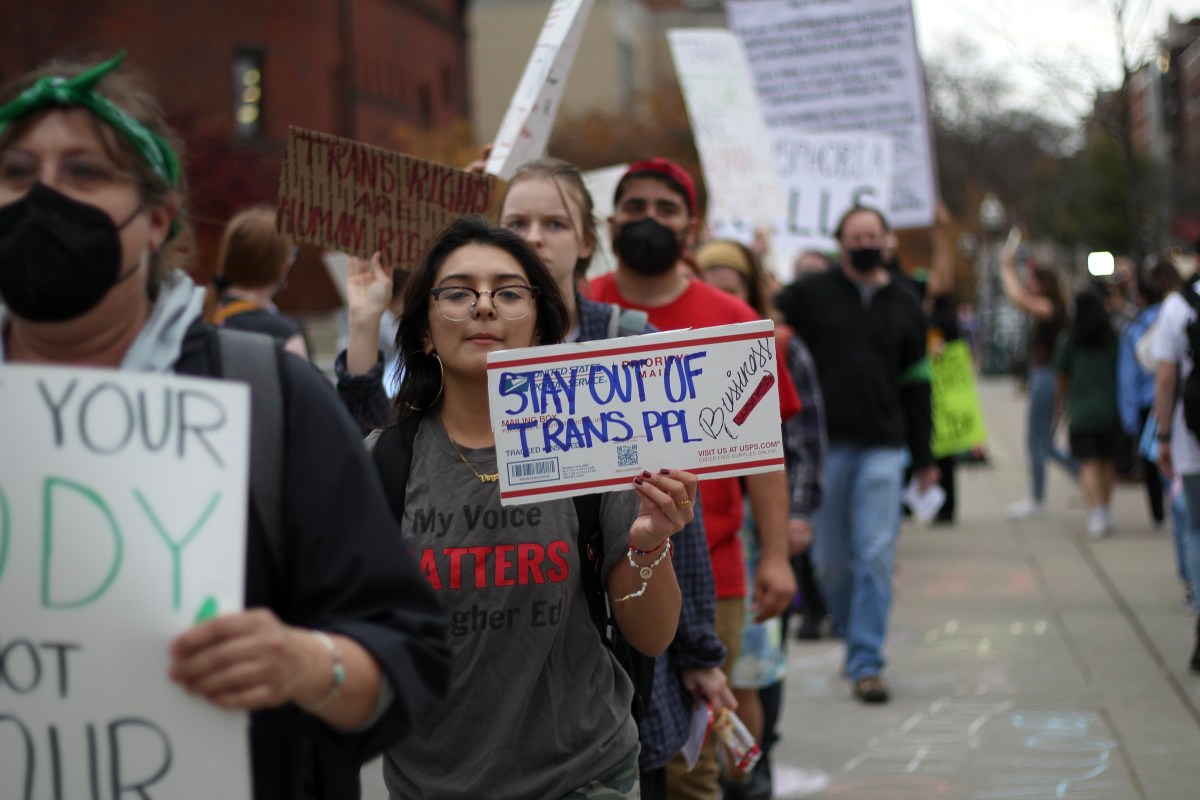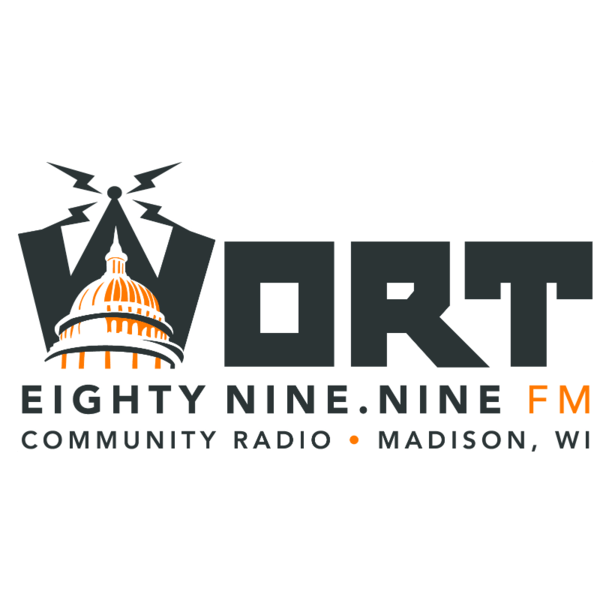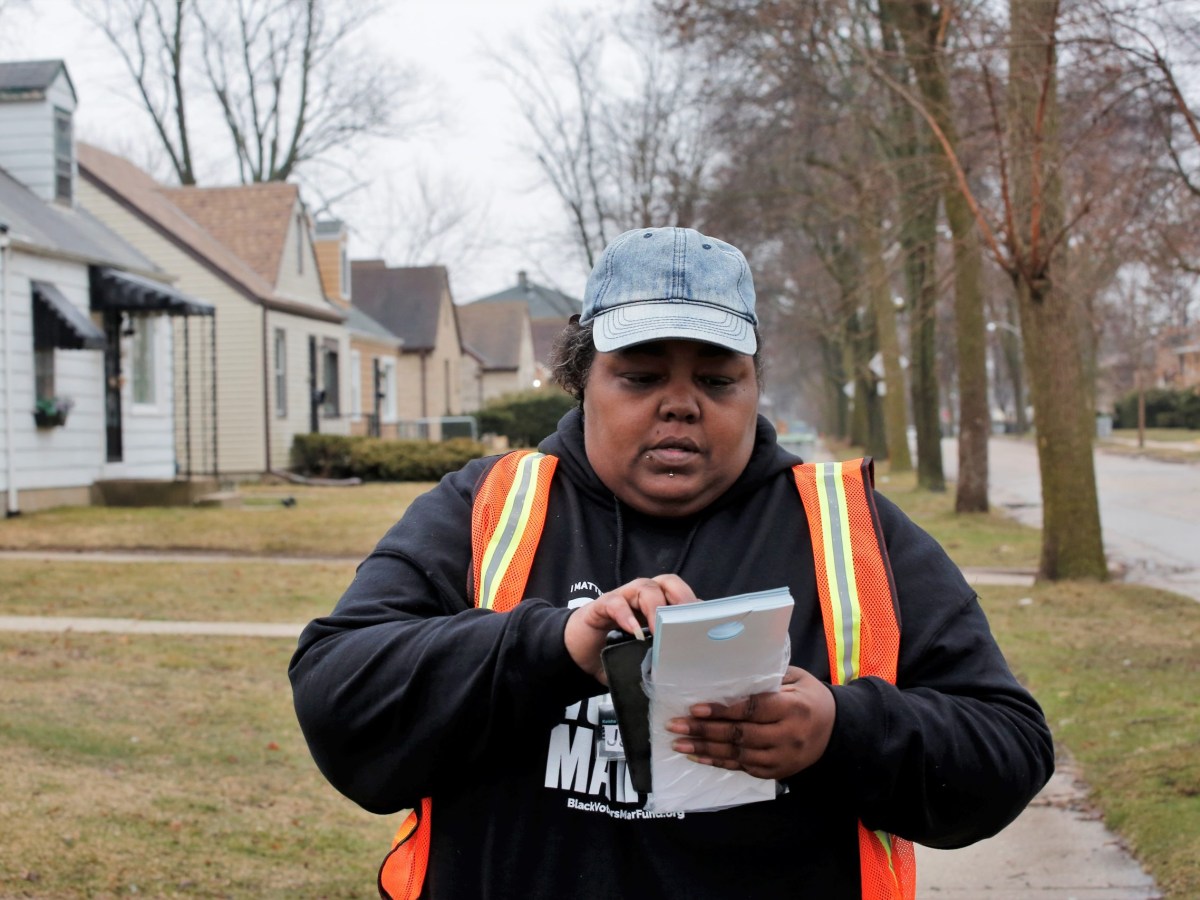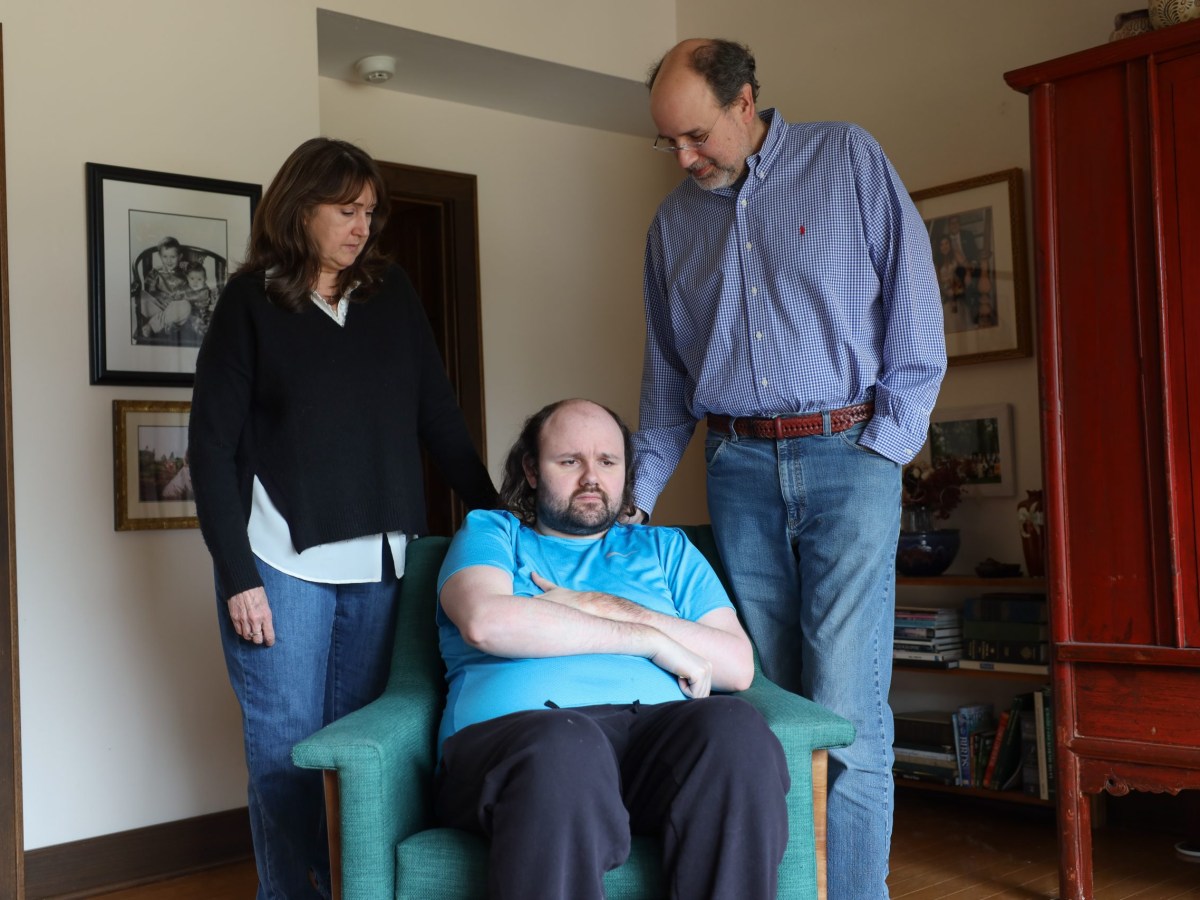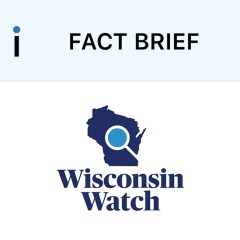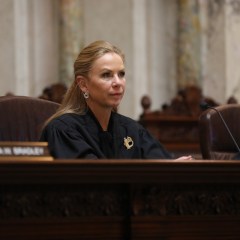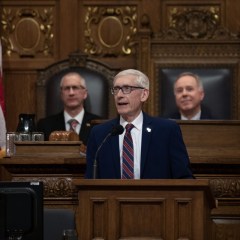Wisconsin Watch is a nonprofit and nonpartisan newsroom. Subscribe to our newsletter to get our investigative stories and Friday news roundup.
When the anti-transgender movement entered Wisconsin’s gubernatorial race, it began with a handout. Somewhere on the Department of Public Instruction’s website was a document titled “Resources for Gender Expansive Preschoolers,” which listed materials with stories about transgender children.
The document is from 2018. But this September, the right-wing outlet The Daily Caller published a story describing its contents. The next day, Tim Michels, the Republican candidate for governor, released a statement lambasting the resource and his opponent, incumbent Democratic Gov. Tony Evers, who led the agency back in 2018.
Michels claimed the Evers administration has “betrayed parents” and “uses our public schools to indoctrinate three-year olds with radical gender ideology,” using a term favored by far right and anti-trans activists.
The Wisconsin GOP soon chimed in, saying DPI “is promoting transgender curriculum to preschoolers.” By the end of the month, similar claims appeared in an attack ad from a political action committee affiliated with the Republican Governors Association.
But the document is not part of any DPI curriculum; in Wisconsin, local school boards determine class instruction. The document came from a presenter at a conference four years ago, says Abigail Swetz, DPI’s communications director.
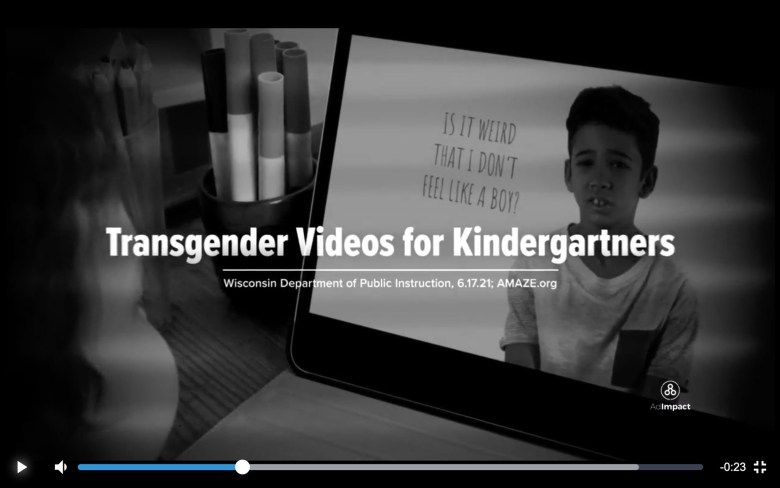
As for the term Michels uses?
“It’s a divisive, political talking point designed to stoke fear and anger in people,” Swetz says. “What we’re talking about is the identity of children, and terms like this one are an attempt to weaponize the very real identity of a very vulnerable population of children.”
Misinformation and fear mongering about LGBTQ people have tainted nearly all realms of civic life in recent years: libraries, churches, health care facilities, federal and state courts — and, especially, schools.
“Parental rights” activists and some parents claim teaching children about the reality of gender diversity is developmentally inappropriate, partially stemming from fear that it will spur more children to want to change their gender identity.
Jack Turban, a Stanford University psychiatrist who studies the mental health of transgender youth, says research has not pinpointed what might cause people’s gender identity to differ from their assigned sex. But, as he writes in a 2020 Scientific American article, one thing is certain: “What good science shows us is that when we accept transgender people, they thrive.”
Today, transgender people are estimated to make up less than 0.5% of the U.S. population. GSAFE, which advocates for LGBTQ protections in schools, used to hear about one to three anti-LGBTQ incidents per year in Wisconsin. Now, co-executive director Brian Juchems estimates it’s that many per week.
“Being an LGBT kid isn’t political, but it’s been politicized,” he says. “What we’re seeing is that outside forces, outside funding, outside organizers are coming into the local school level and local community levels and introducing these divisions into our school districts.”
Research shows that in unsupportive school environments, LGBTQ students perform worse academically and are more likely to attempt suicide. But Wisconsin lacks a number of statutes designed to protect LGBTQ youth in schools, per the Movement Advancement Project. Its nondiscrimination law only applies to sexual orientation, not gender identity. It does not have anti-bullying laws covering LGBTQ youth, nor does it require state curricula to be LGBTQ inclusive.
LGBTQ conflicts spreading statewide
Wisconsin Watch identified conflicts regarding LGBTQ inclusion in 21 communities around the state and Wisconsin’s largest online school — almost certainly an undercount. These include lawsuits over school districts’ gender identity policies, attempts to rescind approved sex education curricula, challenges to library collections and more.
On Monday, more than 100 protesters gathered at the University of Wisconsin-Madison ahead of a speech by anti-trans activist and self-described “theocratic fascist” Matt Walsh. Early that morning, spray-painted messages appeared opposing Walsh and supporting transgender people; they had mostly been removed by the afternoon.
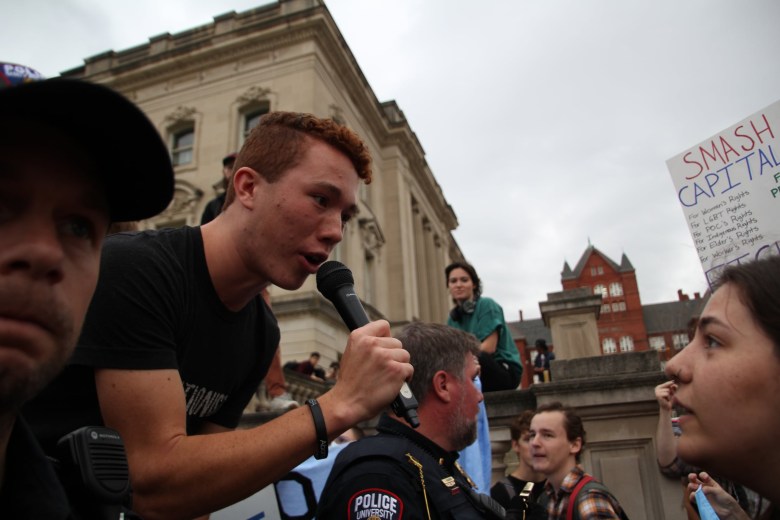
The multi-hour protest grew tense when a handful of people began proselytizing across the street. Protesters surrounded the small group and drowned them out, ripping up their Bible, until police moved them about a block away.
One man who spoke, Nick Proell, told Wisconsin Watch the group attends a church in Brookfield — led in part by Jan. 6, 2021, protester Jason Storms — and travel to abortion clinics and drag queen story hours to preach. Proell described himself as a “saved” Christian who believes in dominionism, a form of Christian nationalism, and claims it is a sin to be gay or transgender.
Students who are transgender have been warily watching the political turmoil. Cameron Craig, a non-binary lesbian high school junior in Madison, says there’s far more social acceptance for LGBTQ people in school — but less so in society at large.
“I’m also noticing more attacks on us as ever,” Craig says. And nearly all “of the actual homophobia (and) transphobia that’s purposefully targeted towards queer people is from adults.”
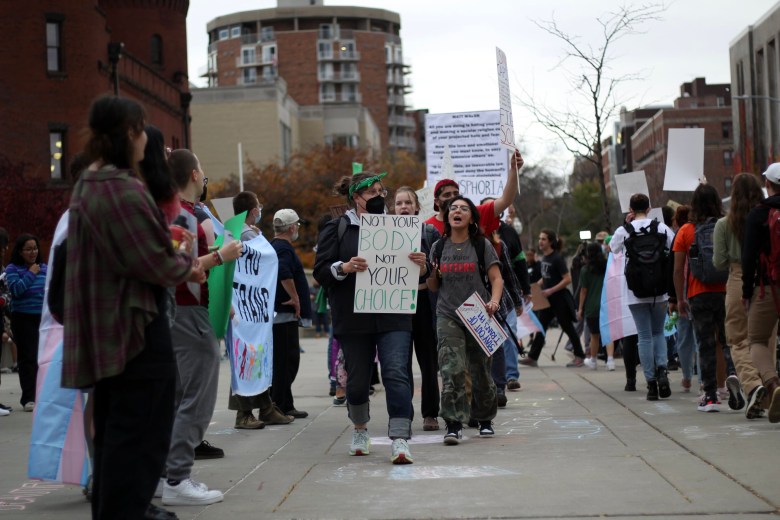
National experts in education, civil rights, LGBTQ issues and the far right all say these events reflect a state and nation ensnared in a “manufactured” “moral panic.” They describe the clarion call of parental rights — which also appeared in vetoed education bills in the Wisconsin Legislature this year — a “false frame” for anti-LGBTQ efforts.
“This initiative is … heavily funded, heavily organized,” says Anne Nelson, author of Shadow Network: Media, Money, and the Secret Hub of the Radical Right. “The response is localized and scattered and genuinely grassroots. You know, it’s one school board, one parent at a time — most of whom don’t know what’s hit them.”
At a contentious Kettle Moraine school board meeting this August, one parent seemed to grasp the larger context: “This effort on pronouns and pride flags is nothing more than a … think-tank distraction to divide this community.”
The debate has led to toxicity around Wisconsin. In Eau Claire, a school administrator received death threats that led to terrorism charges, later dismissed. In Waukesha, at least six teachers resigned in direct response to a district policy they said put LGBTQ youth at risk.
In Madison, UW Health’s gender services program faced a barrage of online harassment after it was highlighted by a prominent anti-LGBTQ Twitter account. (At the UW protest on Monday, a trans woman said the surgeon at the center of that maelstrom “saved” her life.) And in Rice Lake, a school board member resigned in protest to what she described as anti-LGBTQ sentiment.
WILL’s war on trans-inclusive policies
The Wisconsin Institute for Law and Liberty (WILL) appears at the center of many of the conflicts. The right-wing litigation center has four pending LGBTQ-related lawsuits, challenging schools’ gender identity policies and a conversion therapy ban through parental rights and free speech claims.
All three of WILL’s school-based lawsuits — in Madison, Kettle Moraine and Eau Claire — challenge policies that permit students to change their names and pronouns, sometimes documented in a “gender support plan,” while notifying parents only with the student’s consent.
The Madison and Eau Claire district policies, challenged in state and federal court, respectively, justify the disclosure guidance on the basis of student safety. They align with model policies from GLSEN, a national nonprofit providing research and best practices for supporting LGBTQ youth in schools.
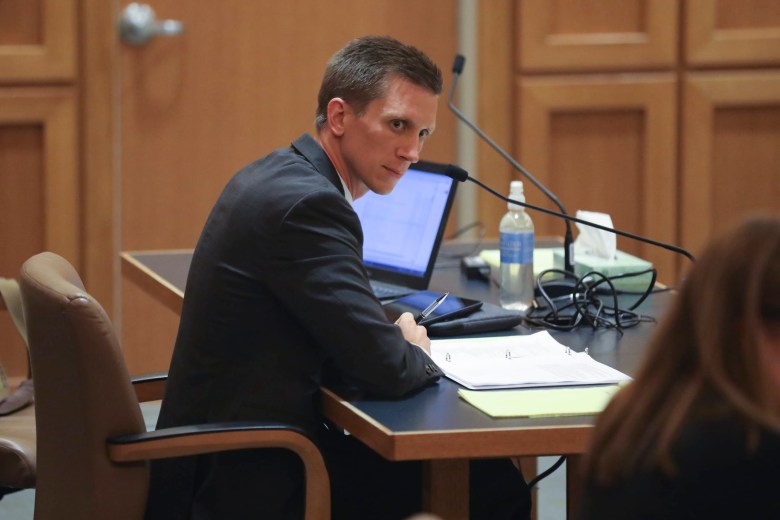
But Luke Berg, WILL’s deputy counsel, considers such policies “a pretty clear violation of parents’ constitutional rights” and “outside the norm of what parents expect when they send their kids to school.”
Although the policies relate to a change in name, pronouns or school facilities, which can be a part of a social transition, WILL has extended the debate into medicalized transition. Says Berg: “Obviously, it would be better if the child could learn to find comfort with the body that they were born with.”
WILL also is representing a Milwaukee Public Schools counselor who, at an anti-trans rally, said she would never allow a student to transition, concluding with an expletive-laden statement against transgender people. The counselor also told the Milwaukee Journal Sentinel that she would not use a transgender student’s chosen name or pronouns.
The law firm has weighed in on the Kiel, Wisconsin, school district’s investigation into treatment of a transgender middle school student, sparking turmoil and bomb threats that shuttered schools at the end of the 2021-22 school year.
In two of the school-based challenges, WILL has partnered with Alliance Defending Freedom, a Christian nationalist juggernaut that has supported criminalizing gay sex and sterilizing transgender people. It’s challenging gender identity policies in several other states because, according to its website, it views the existence of transgender people an “existential threat to society.” The Madison-based Center for Media and Democracy estimates the group raised more than $78 million in 2020.
More Americans than ever support civil rights protections for LGBTQ people, although teaching about gender identification in school gets less support.
“You have this very small, focused, disciplined number of activists who have manufactured a crisis,” says John King, former U.S. Secretary of Education and current president of the education civil rights group The Education Trust. “It’s very dangerous to the health of our society.”
‘It really is about political power’
Indeed, hate crimes and anti-LGBTQ bills have skyrocketed across the United States. The rhetoric often recycles tropes from an earlier anti-gay movement.
Finn Enke, a professor studying the history of gender and sexuality in the 19th and 20th centuries at the University of Wisconsin-Madison, says historically, anti-LGBTQ movements rise and fall with electoral cycles.
“It’s organized by people who are funding specific politicians and a specific political agenda,” Enke says. “It really is about political power and not about gender and not about sexuality.”
The movement spreads falsehoods about LGBTQ adults “grooming,” “recruiting” or “indoctrinating” children into an “ideology” or “agenda” — often by merely existing or teaching about sexual and gender diversity. At a school board meeting in Superior, a parent objected to a curriculum explaining how a person’s sex and gender can differ by claiming administrators were “trying to trans our kids.”
Democrat Laura Gapske, a Superior School Board member who is running for the Assembly, has been targeted by the Wisconsin Alliance for Reform, which the Wisconsin Democracy Campaign describes as a conservative “phony” issue ad group, now run by long-time Republican operatives including Eric O’Keefe.
Gapske opposed a Republican bill — vetoed by Democratic Gov. Tony Evers — that would’ve banned transgender athletes from competing in girls’ sports. She also supported fifth grade curriculum that explains how a person’s sex and gender identity can differ.
The attack ads have falsely mischaracterized her position as wanting to teach 4-year-olds about sex and asked the question, “Do our schools need to teach him that he might be a girl?” Gapske says such rhetoric makes trans students feel unsafe at school.
And, says Enke, such messaging creates a “moral panic,” framing efforts to combat LGBTQ visibility or acceptance as protecting children and families.
Book bans on the rise
That same false narrative pervades an “unprecedented flood of book bans in the 2021–22 school year,” according to a report from PEN America, which advocates for freedom of expression. Researchers found that the “vast majority” of challenged books feature LGBTQ characters, characters of color or sex education.
Just as polling shows widespread support for LGBTQ people, it also shows the vast majority of Americans — regardless of political party or race — oppose book bannings.
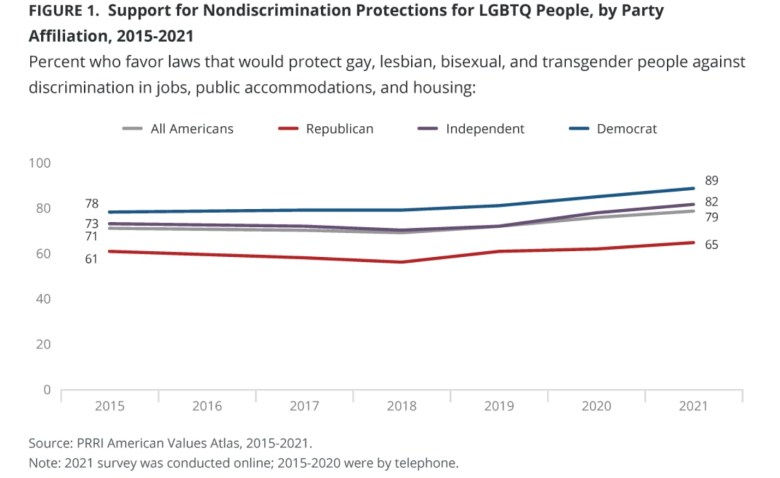
The “large majority of book bans underway today are not spontaneous, organic expressions of citizen concern,” the PEN America researchers concluded. Instead, they come from a collection of at least 50 organizations, some with substantial funds.
Several of these groups have active chapters in Wisconsin, including No Left Turn in Education, which is helmed by a parent who has challenged a school district’s gender identity policies and sex education curriculum; and Moms for Liberty, whose spokesperson has called for a “mass exodus from the public school system” and which is considered an astroturfing dark money group, meaning a group that appears to be grassroots but is funded by hidden special interests.
The Alliance Defending Freedom, WILL’s partner in litigation, lists No Left Turn in Education and Moms for Liberty as partners on its website. Messages seeking comment from representatives of all three groups were not returned.
Berg describes the Alliance Defending Freedom as “a well respected nonprofit public interest litigation firm like ours.” The Southern Poverty Law Center labels it a “hate group.”
Right-wing activist Christopher Rufo, who weaponized the idea of “critical race theory,” has said LGBTQ issues are even more combustible, and publicly outlined his plans to use it as a political tool.
Speaking to The New York Times in April, he said: “The reservoir of sentiment on the sexuality issue is deeper and more explosive than the sentiment on the race issues.”
In a recent tweet, Rufo boasted he’s “running the same playbook” against gender identity, and that the anti-trans movement “has become a winning issue for conservative candidates across the country.”
Nelson, author of two books on anti-Nazi resistance movements and one on America’s far right, says the right has “managed to depict (the tiny minority of transgender people) as a harm to society, using falsehoods and creating a scapegoat population. … They’ve been especially targeting voting blocs that have been more sympathetic to Democrats, including suburban white female voters.”
Nelson calls it a “very, very distinct political tactic” that harms not just LGBTQ people, but everyone.
Safety at center of policies
Paul Castillo, senior counsel and students rights’ strategist at the pro-LGBTQ-rights group Lambda Legal, says he has seen a national “influx” of challenges to school policies aimed at providing safe, inclusive environments for all students, “particularly for LGBTQ students who have disproportionate rates of harassment and harm.”
Nationally, LGBTQ youth — and especially transgender youth — are overrepresented among those experiencing homelessness. Family abandonment, mistreatment or fear of mistreatment due to their LGBTQ identity factor significantly into this instability. And in Dane County, transgender youth were more likely to report experiencing homelessness or being hit by a parent, compared with their cisgender peers.
At oral arguments in the Madison case in October, Berg told the judge that if the school believed students faced danger at home due to their identity, staff had an obligation to contact child protective services.
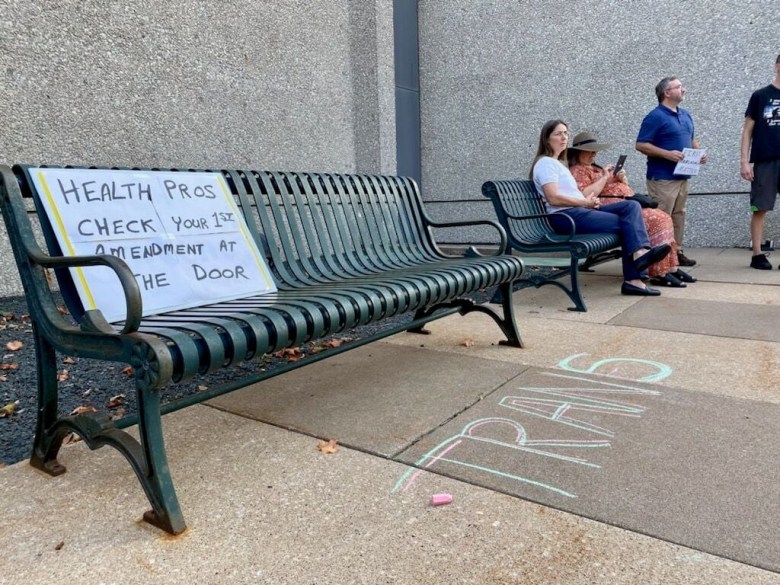
Craig, the non-binary high school junior, knew their parents would be supportive, but they came out slowly and selectively — first with friends, then with some teachers and eventually family — to explore what worked best. Craig had not heard of the Madison district’s gender support plan policy until WILL sued.
“That experimentation phase was literally the best part of getting to be queer for me,” says Craig, who has been an LGBTQ activist for about seven years. “I got to experiment with that identity without anyone knowing, which means no one judging.”
Almost all of the original, anonymous plaintiffs in the Madison case stated in affidavits that if their children expressed interest in gender transition, they would “not immediately allow them to do so, but would instead pursue a treatment approach to help my children identify and address the underlying causes of the dysphoria and learn to embrace their biological sex.” Eleven cited a Christian belief that there are two immutable God-given sexes.
Conversion therapy is restricted in at least 27 states because it is a widely discredited, harmful practice that, among other things, it can increase suicidality. It is permitted in Wisconsin, but select municipalities have banned the practice, including La Crosse, which WILL is suing on the basis of free speech and religion.
In one of the first cases to examine such gender identity policies, Castillo says, a Maryland federal court found a challenge similar to WILL’s on the basis of parental rights unpersuasive. The court found “no fundamental right” to be “promptly informed of a child’s identity,” Castillo explains, especially when weighed against the student’s own wishes and potential safety concerns.
A chilling effect
The LGBTQ-related lawsuits filed by WILL have reverberated across the state.
After getting sued, the Kettle Moraine School District announced a legal analysis had prompted them to devise a new interpretation of a longstanding district policy, which now prohibits, among other things, staff from hanging gay pride flags on campus or including their own personal pronouns in their email signatures.
Outraged comments deluged the district’s Facebook page, and community members packed the next month’s board meeting.
“How can a pride flag be political? How can we, as people, be political?” asked one student.
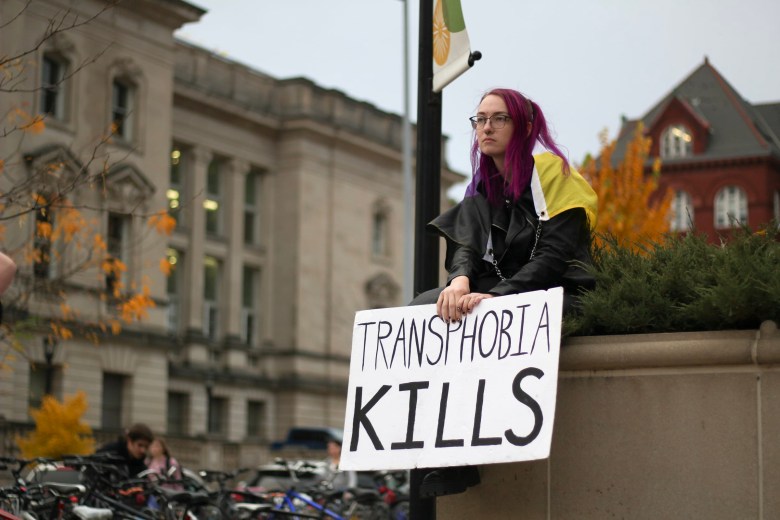
Juchems, of GSAFE, says other school districts appear wary of attracting WILL’s ire. In 2020, the Kenosha Unified School Board passed a policy for nondiscrimination of transgender students, but declined to revise other provisions — related to changing students’ names, pronouns or overnight field trip accommodations — while it awaits the Madison decision.
This year, the Arrowhead and Rice Lake school boards passed policies requiring parental consent before allowing students to change their names or pronouns. Both of these policies came after WILL filed its lawsuits against Madison and Kettle Moraine.
Craig, who fears WILL’s lawsuits are just the start of the fight in Wisconsin over LGBTQ rights, vows to continue advocating for queer and trans people.
Says Nelson, the author: “This is a movement that has made a practice of sowing falsehoods in communities to create chaos and distrust in their institutions. It doesn’t lead to reasoned discussions about what is best for the kids in that curriculum. It leads to animosity within the community, and people get hurt.”
Our democracy coverage
At Wisconsin Watch, we are committed to preserving democracy by combating mis- and disinformation, critically reporting on the politically powerful and examining how state laws and policies affect the daily lives of Wisconsinites. Only by providing accurate, timely and fact-based information can we defend the democratic institutions that guarantee our freedoms and civil liberties.
Reporters Matthew DeFour and Mario Koran contributed to this story. The nonprofit Wisconsin Watch (www.WisconsinWatch.org) collaborates with WPR, PBS Wisconsin, other news media and the University of Wisconsin-Madison School of Journalism and Mass Communication. All works created, published, posted or disseminated by Wisconsin Watch do not necessarily reflect the views or opinions of UW-Madison or any of its affiliates.


